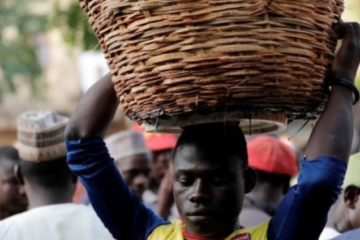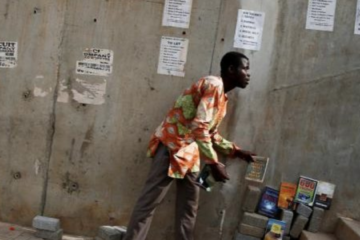The name of Malaysia’s capital, Kuala Lumpur, means “muddy junction” or “muddy confluence” of two rivers, the Gombak and Klang. That name serves as a nice metaphor for Malaysia itself as it is a confluence – a clash, really – of cultures. Malay, Chinese, Indian, and European influences are visible throughout the country. According to the 2010 population survey, most of the population of Malaysia practice Islam (61 percent), but Buddhists (19 percent), Christians (9 percent), and Hindus (6 percent) are all present.
Though an ancient people, Malaysia is a young country. A British colony for a century, it suffered Japanese occupation from 1942-45, returned to British rule after the war, and finally gained independence in 1957. Most Westerners, however, know none of that. For them, Kuala Lumpur is probably best known for the 1,483-foot Petronas Twin Towers. From 1998 – 2004 they were the tallest buildings in the world. Whatever notoriety that did not give them, Sean Connery and Catherine Zeta-Jones more than made up for in the 1999 caper Entrapment, where Connery and Jones climb all over the towers Ninja-style and steal an ancient artifact and leave the Malay police looking like the Keystone Kops.
I negotiated a ride with a Chinese taxi driver named Lim Jie. For two days he drove us all over KL so that I saw all of the major sites: the royal palace of Istana Negara; the KLCC Park and shopping mall; the Batu Caves; the KL Tower; Chinatown; the National Mosque of Malaysia; the Buddhist Temple at Thean Hou; the Golden Triangle; and the Petronas Towers.
Lim Jie proved interesting.
“Are you married?” I asked, making small talk.
He laughed bitterly, telegraphing that the question had an unhappy answer: “No.”
“Why not?” Fortyish, I assumed he would have a wife and children.
“No money, no honey,” he replied.
This is common throughout Asia. I have encountered this very term in China, Hong Kong, Korea, Japan, Singapore, and now here, where women often marry for financial security, not love.
“Asian women will date their not-so-wealthy peers to have fun,” he explains. “But they will never marry you unless you own something like a nice apartment or you make a lot of money. So I date, yes, but none of those women would marry someone in my financial position.”
By global standards, Lim does well for himself. He owns his taxi and he makes enough to lease an apartment in the city, but that is not enough to qualify him for marriage with the kind of woman he wants. So he dates and hopes to make it big someday. Like so many people all over the world, Lim hopes to immigrate to America and, in a stroke, change his fortunes.
“Chinese girls are very high maintenance,” he says. “They want money, not love. No money, no honey.”
He reflected for a moment and then, as if a plan had just materialized in his head, he said, “I might marry a Thai woman. Thai women are much less difficult. They think they lucky to get a Chinese taxi driver!”
Since I had just come from Thailand, I suggested he take his taxi north and begin his romantic search – or at least try his chances on EHarmony or some Malaysian equivalent. He appeared to be considering it.
At the Batu Caves, an extraordinary Hindu Temple with a massive 140-foot statue of Lord Murugan, I climbed the seemingly endless steps to the caves while Lim worked on his plan. Tourists milled about taking selfies – an obsession throughout Asia – while others made offerings to the false gods and worshipped. From the top of the steps, I looked once again at Lord Murugan. The Hindu god of war, he is the equivalent of the Assyrian god Ashur, the Greek god Ares, and the Roman god Mars – but much, much bigger. I halfway expected to hear the cracking of stone and see Murugan taking steps forward, crushing tourists under his sandals like Talos in the Ray Harryhausen movie of my childhood. The big statue was creepy in the way that all statues of pagan gods are creepy.
Lim’s own Chinese folk religion seemed to be pluralistic. He offered his respects to everybody’s god(s) – Allah, the tens of thousands (millions?) of Hindu deities, the Buddhist essence, and Jesus. When I tried to explain that Jesus and Allah both demanded exclusivity, he demurred. Lim simply preferred not to know. There was a pragmatism to his broad acceptance of all of these religions. In a country like Malaysia, he couldn’t afford to make anyone unhappy.
Public morality in Malaysia is shaped by Islam, a religion that is no more indigenous to this country than it is to France or Germany. It is an oppressive feeling that makes Calvin’s Geneva look like Vegas. The Qibla arrow on the ceiling in my hotel room points toward Mecca and a prayer mat hangs in the closet. Five times a day, the muezzin calls out over loudspeakers: “Allahu Akbar! Allah is the Greatest!”
I beg to differ. Like one of the best moments in modern cinema, when you hear this annoying prayer blaring all over the city in the middle of the night – a sound that is very much like bad yodeling – you are tempted to take matters into your own hands as Jean Dujardin did in this hilarious scene. Indeed, this scene is so politically incorrect that I am shocked a French filmmaker would include it.
But I am glad that he did.
Larry Alex Taunton is an author, cultural commentator, and freelance columnist contributing to USA TODAY, Fox News, First Things, The Atlantic, CNN, and The American Spectator. In addition to being a frequent radio and television guest, he is also the author of The Grace Effect and The Gospel Coalition Arts and Culture Book of the Year, The Faith of Christopher Hitchens. You can subscribe to his blog at refined-badger-e0ceb8.instawp.xyz.




